STS Honorary Medal
The STS Honorary Medal was established in 2010 by the Signal Transduction Society in association with the BMC Journal “Cell Communication and Signaling” (CCS) to acknowledge outstanding individuals for their ground-breaking contributions in deciphering signaling pathways in normal and diseased cells. From 2017 until 2022, the International Journal of Molecular Sciences (IJMS) has been co-sponsor of the medal, which is now awarded again by the Signal Transduction Society alone.
Areas of awarded research reflect the STS motto “Signal Transduction - Receptors, Mediators and Genes”. Excellent candidates have been nominated by STS members, and the award committee, composed of STS council and advisory board, has unanimously selected the laureates.
Each year the Medal is presented at a Medal Ceremony, which takes place in the course of the annual meetings of the Signal Transduction Society. As a special highlight of the ceremony the honorable awardees deliver their Medal Lectures, in which they share personal views of the history of their outstanding discoveries in signal transduction research as well as their visions for the future.
Recipients of the STS Honorary Medal are so far:

Hao Wu
2025
Hao Wu has been awarded the STS Honorary Medal for her lifetime contributions to investigating the molecular mechanisms of signal transduction in innate immunity. Professor Wu has defined the structures of many immune-related proteins, thereby revolutionizing our understanding of the molecular mechanisms leading to the assembly of the higher-order protein complexes that are responsible for the induction of cell death and inflammation. She has inspired and supported generations of students and colleagues.

Lewis C. Cantley
2024
Lewis Cantley not only discovered the phosphatidylinositol 3-kinases (PI3Ks) but also characterized the mechanism by which PI3K is activated by growth factors and oncogenes. While elucidating PI3K's pathways, he has identified numerous proteins, such as Akt/PKB, that are central of regulating cell survival and proliferation in normal and cancer cells. His findings have not only deepened our knowledge of the molecular mechanisms driving cancer but have also paved the way for developing targeted therapies, transforming the landscape of cancer treatment. Lewis Cantley inspired, supported and guided generations of students and fellows.
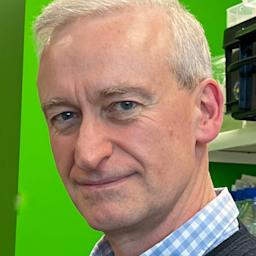
Julian Downward
2023
Julian Downward stands as a visionary and prolific scientist whose achievements have profoundly shaped the landscape of molecular biology and cancer research. He pioneered groundbreaking discoveries in the field of cell signaling, particularly in unraveling the intricate mechanisms of the Ras pathway. His work has illuminated the underlying molecular switches that drive normal as well as oncogenic cellular signaling contributing to the development of various cancers. Julian Downward's extraordinary contributions extend beyond the laboratory, as his findings have not only advanced our fundamental understanding of cellular behavior but have also offered critical insights into the development of targeted therapies for cancer. His dedication to translating scientific knowledge into tangible medical advancements has earned him widespread recognition and admiration.
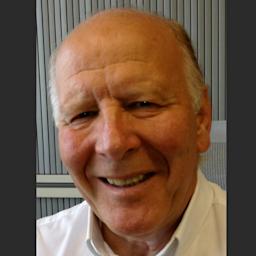
Peter H. Krammer
2020/2021
Peter H. Krammer has been awarded for his lifetime contributions to the elucidation of cell death signaling. He identified the death receptor CD95 (APO-1/Fas), and demonstrated that apoptosis is an intrinsic physiological process within cells. Furthermore, Krammer elucidated the death-inducing signaling complex, activation-induced cell death (AICD) on the single cell level and described how T cell death contributes to immunological tolerance.
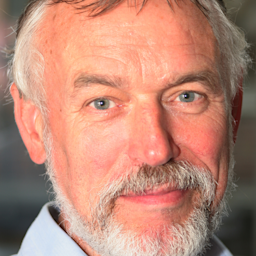
Alfred Wittinghofer
2019
Professor Alfred Wittinghofer (Max Planck Institute of Molecular Physiology, Dortmund, DE) was awarded the STS Honorary Medal in 2019 for his long-standing and influential work on structure-function relationships of GTP-binding proteins and their involvement in physiological and pathophysiological processes.
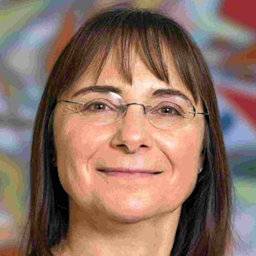
Karen Vousden
2018
Professor Karen Vousden (Francis Crick Institute, London, UK) was awarded the STS Honorary Medal in 2018 for her lifetime contributions on the function and regulation of the tumour suppressor p53.
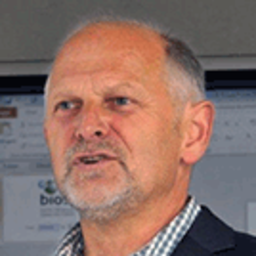
Michael Reth
2017
Professor Michael Reth (Max Planck Institute of Immunobiology and Epigenetics, Freiburg, Germany) was awarded the STS Honorary Medal in 2017 for his lifetime contributions on intracellular signaling pathways in lymphocytes and his pioneering work on the structure and function of the B-cell receptor.
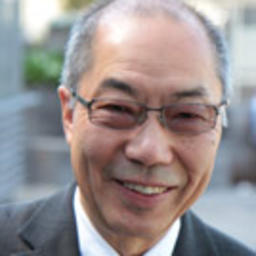
Tak W. Mak
2016
Professor Tak W. Mak (Campbell Family Institute for Breast Cancer Research, Toronto, Canada) received the STS Honorary Medal in 2016 for his contributions and discoveries in the fields of immunology, signal transduction and cancer biology.
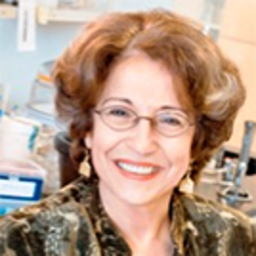
Mina J. Bissell
2015
Professor Mina J. Bissell (Lawrence Berkeley National Laboratory, Berkeley, USA) was honored for her lifetime contributions to discover the role of the tumor microenvironment in the development of breast cancer.
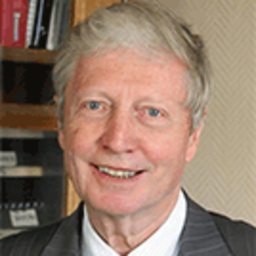
Jules A. Hoffmann
2014
Professor Jules A. Hoffmann (University of Strasbourg, Strasbourg, France) and Nobel Prize winner in 2011, received the Medal in 2014 for his seminal work on the molecular basis of innate immunity and the discovery of Toll-like receptors.
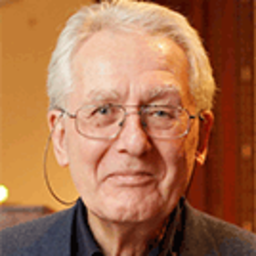
Klaus Rajewsky
2013
Professor Klaus Rajewsky (Max Delbrück Center for Molecular Medicine (MDC) Berlin-Buch, Germany) was honored in 2013 for the development of conditional gene targeting in mice and its application to identify the functions of signaling pathways in normal and malignant cells of the immune system.
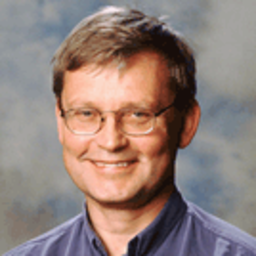
Carl-Henrik Heldin
2012
Professor Carl-Henrik Heldin (Ludwig Institute for Cancer Research, Uppsala, Sweden) received the STS Medal in 2012 for his seminal work on growth factors and their receptors.
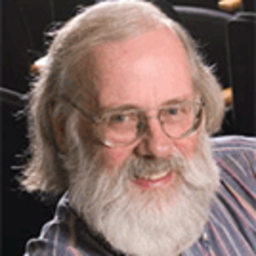
Anthony R. Hunter
2011
Professor Anthony (Tony) R. Hunter (The Salk Institute, La Jolla, California, USA) was honored in 2011 for the identification of reversible tyrosine phosphorylation of proteins as a basic principle of signal transmission.
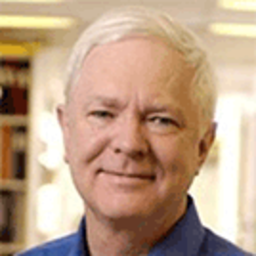
Anthony J. Pawson
2011 († August 7, 2013)
Professor Anthony (Tony) Pawson (Mount Sinai Hospital, Toronto, Canada) was awarded the Medal in 2010 for his discovery of modular protein interaction domains and their importance for signal transduction.
Application Deadline 2025
The deadline for all applications (travel grants, GBM-Innovation-Award, STS Science Award) has been extended to September 21, 2025!
STS Science Award
This prize is meant to honor outstanding research by a post doc or a junior principal investigator of the Signal Transduction Society and we explicitly encourage also early career scientists to apply for the STS Science Award. The prize was first introduced at the annual STS Meeting in 2005, ever since it became a regular element of all following STS Meetings. The STS Science Award was first sponsored by Acris Antibodies GmbH (2005-2007 and 2009), Biomol GmbH (2010-2017), and OMNI Life Science GmbH (2018). Since 2019, the STS Science Award is donated with a sum of 1500,- Euro by the Signal Transduction Society.
A list of STS science awardees can be found here.
At the meeting, the applicants will have to present their work both as an oral presentation (which requires the contribution to be selected as a talk by the respective chair people) and as a poster. The jury board consisting of the STS council and STS advisory board members will evaluate the applicants’ scientific achievements and background in general and discuss the meeting contributions in detail in order to finally take their decision on the awardee.
Applicants should submit a cover letter, the abstract of the work to be presented at the STS meeting, a brief description of the project highlighting major scientific achievements and a CV that includes the list of publications.
Please submit your application as a single PDF-file to the chairman of the award jury:
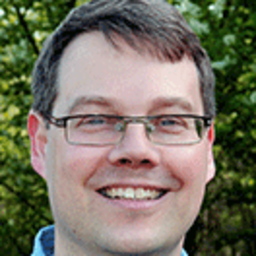
Ingo Schmitz
Institute of Molecular Immunology
ZKF2
Universitätsstr. 150
44801 Bochum, Germany
Please also refer to the effective STS Meeting home page.
Application Deadline 2025
The deadline for all applications (travel grants, GBM-Innovation-Award, STS Science Award) has been extended to September 21, 2025!
GBM-Innovation-Award for Young Scientists
Each year on the occasion of the STS Joint Meeting “Signal Transduction - Receptors, Mediators and Genes”, the Society for Biochemistry and Molecular Biology/Gesellschaft für Biochemie und Molekularbiologie e.V. (GBM) announces the GBM-Innovation-Award for Young Scientists, donated with EUR 500,–.

With this scientific award, the GBM would like to acknowledge young scientists especially working on a new and interesting method in the field of biochemistry, molecular and cell biology as well as signal transduction. The prize will be granted to a young scientist (diploma, master, MD or PhD student or post doc within their first years) who is developing or has developed a novel and innovative method, which might be attractive for all of us. The work has to be submitted as an abstract to the STS-Meeting and must be presented also as a poster, even if the abstract is selected for oral presentation. The awardee will be announced at the Award ceremony. Awards can only be received personally.
A list of GBM Innovation Awardees can be found here.
The award jury consisting of the speakers of the GBM-Study Groups “Biochemical Pharmacology and Toxicology” and “Receptors and Signal Transduction” will select appropriate candidates.
If you feel your method is exciting and innovative, we would greatly encourage you to submit your application including a cover letter, the CV, the abstract, and a very brief description of your project together with a brief comment from your supervisor as a single PDF-file to:
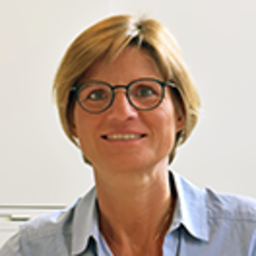
Klaudia Giehl
Signal Transduction of Cellular Motility (Medical Clinic IV)
Science Unit for Basic and Clinical Medicine
Aulweg 128 - ForMed
35392 Gießen, Germany
For submission details, please also refer to the effective STS Meeting home page. Please note that only complete applications will be evaluated.
Application Deadline 2025
The deadline for all applications (travel grants, GBM-Innovation-Award, STS Science Award) has been extended to September 21, 2025!
STS travel grants
The STS financially supports up to ten young society members (bachelor, master or doctoral students) to attend the meeting. Eligible STS members are strongly encouraged to apply for a travel grant of EUR 350.–
For a STS travel grant the eligible candidate needs to provide the following documents (as a single PDF-file):
STS membership (which has to be maintained for at least three more years
Curriculum vitae
Description of the current project (no more than two pages)
Abstract to be presented at the STS Meeting
Current status as a master or doctoral student (confirmed by the supervisor)
Enrollment (confirmed by an immatriculation certificate)
SEPA bank account details (IBAN / BIC / account owner)
Successful applicants will be notified in October and personally awarded during the STS Meeting in Weimar. The award ceremony will be part of the General Assembly of the Society. Awards will be paid via SEPA bank transfer.
Please send your application to the STS Travel Grant Committee (stipend@sigtrans.de).
Poster Prizes
Poster presentations at the conference are particularly attractive. The conference venue at the Leonardo Hotel Weimar offers sufficient space for all posters to remain on display throughout the conference. All posters are introduced to the plenum in a “My Poster in a nutshell” session, and there will be ample time for poster presentations and lively discussions. As it is the policy of the STS to particularly encourage and support young scientists, five poster prizes will be awarded with a prize money up to EUR 250.–
The candidates will be selected by the chairs of the various sessions during the STS Meeting. In order to particularly support young scientists, chairs and heads of departments or institutes are not eligible for a poster prize.
The poster prizes will be announced at the award ceremony. The awards can only be accepted in person personally and will be paid out by SEPA bank transfer.